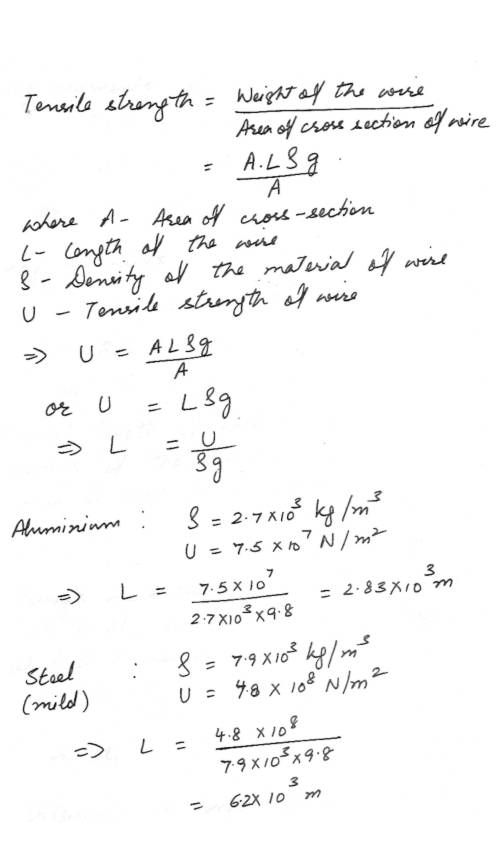Physics Properties Of Matter Level: University
Pascals LawWhich one of the following statements concerning a completely enclosed fluid is true?
a. Any change in the applied pressure of the fluid produces a change in pressure that depends on direction.
b. The pressure at all points within the fluid is independent of any of any pressure applied to it.
c. Any change in applied pressure produces an equal change in pressure at all points within the fluid.
d. An increase in pressure in one part of the fluid results in an equal decrease in pressure in another part.
e. The pressure in the fluid is the same at all points within the fluid.
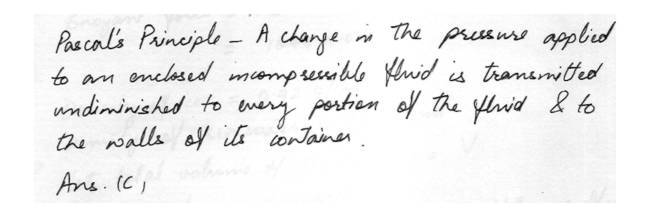
Physics Properties Of Matter Level: University
PressureThe largest barometer ever built was an oil-filled barometer constructed in leicester England in 1991. The oil had a height of 12.2m Assuming a Pressure of 1.013 x 105 Pa what was the density of the oil used in the barometer?
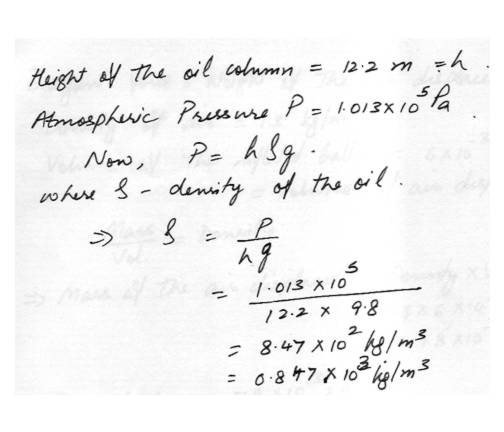
Physics Properties Of Matter Level: University
PressureA submarine is operating at 100.0 m below the surface of the ocean . If the air inside the submarine is maintained at a pressure of 1.0 atmosphere what is the magnitude of the force that acts on the rectangular hatch 2.0 m x 1.0 m on the deck of the submarine?
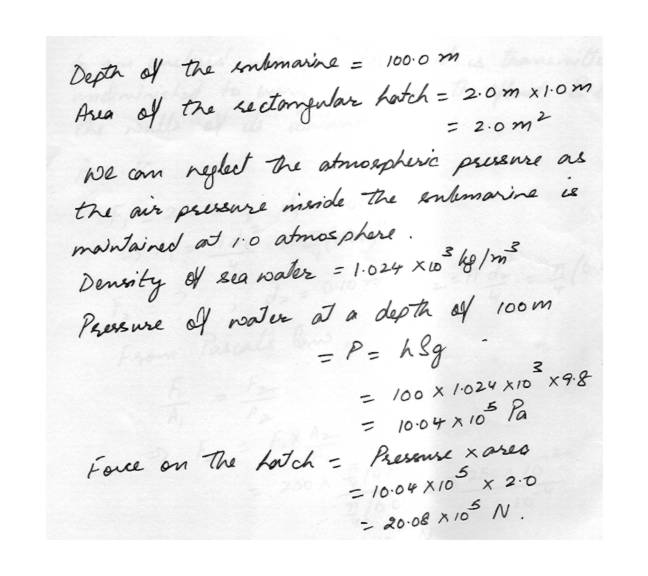
Physics Properties Of Matter Level: University
PressureUsing the value of atmospheric pressure at sea level 1.0 x 105 pa estimate the total mass of the earths atmosphere above a 5-m area.
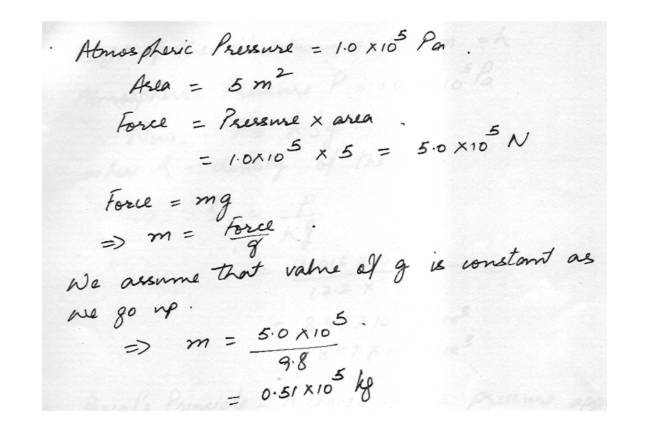
Physics Properties Of Matter Level: University
PressureHow much force does the atmosphere exert on one side of a vertical wall 4.00-m high and 10.0-m long?
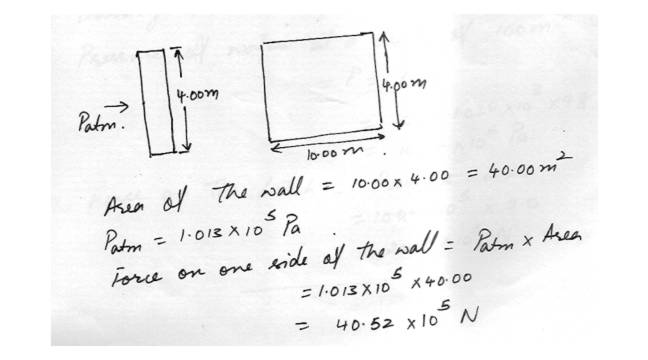
Physics Properties Of Matter Level: University
DensityThe average density of the material in intergalactic space is approximately2.5 x 10'27 kg/m3. What is the volume of a gold sample p - 19300 kg/m3 that has the same mass as 8.0 x 1024 m3 of intergalactic space?
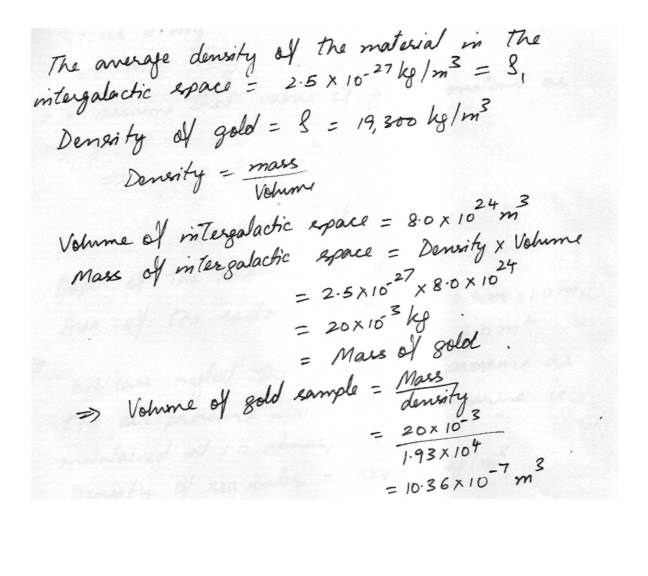
Physics Properties Of Matter Level: University
DensityAt standard temperature and pressure carbon dioxide has a density of 1.98 kg/m3. What volume does 0.85kg of carbon dioxide occupy at standard temperature and pressure?
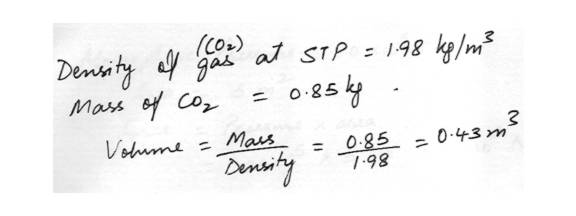
Physics Properties Of Matter Level: University
SolidA cable stretches by an amount d when it supports a crate of mass M. The cable is cut in half. What is the mass of the load that can be supported by either half of the cable if the cable stretches by an amount d?
a. M/4
b.M/2
c. M
d. 2M
e. 4M
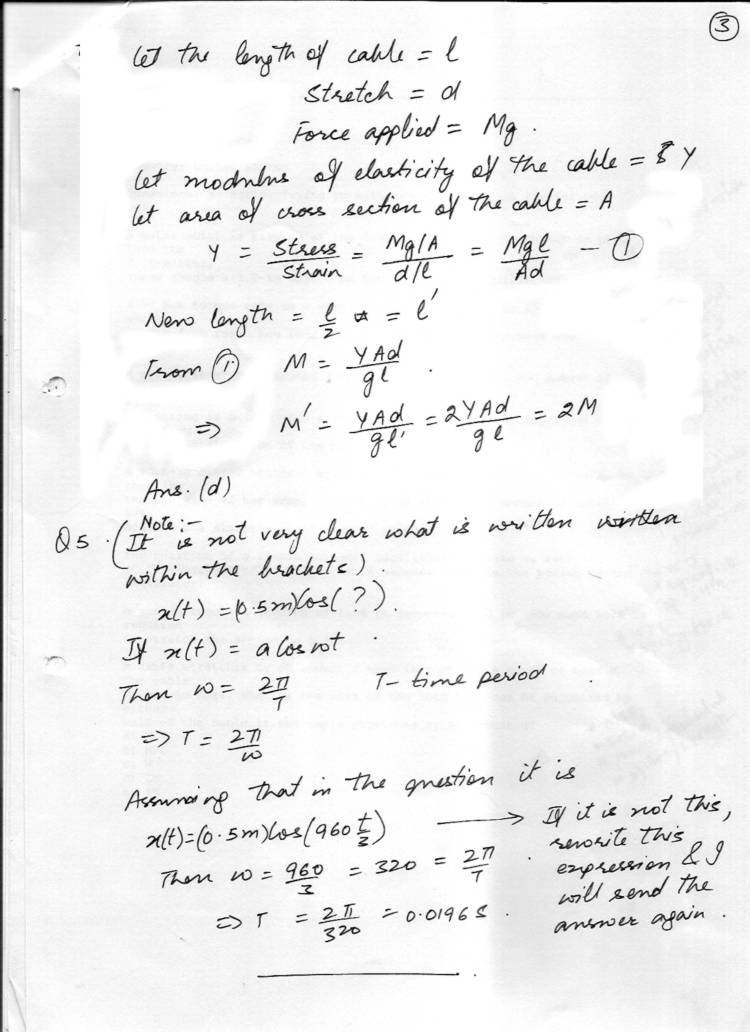
Physics Properties Of Matter Level: University
Low of floationA balloon is released from a tall building. The total mass of the balloon including the enclosed gas is 2.0 kg. Its volume is 5.0 m3 .The density of the air is 1.3 kg/m3. Will the balloon rise fall or remain stationary and why?
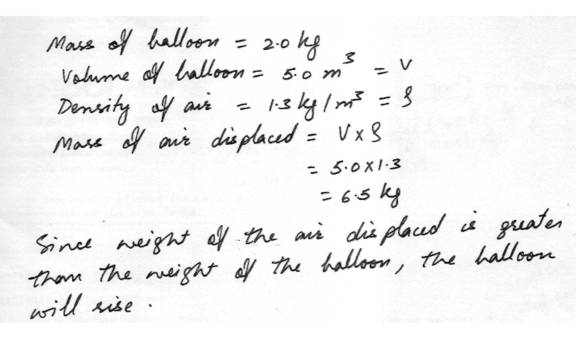
Physics Properties Of Matter Level: University
Law of floatationThe density of ice is 0.92 g/cm3 and the density of seawater is 1.03 g/cm3. A large iceberg floats in the Arctic water. What fraction of the volume of the iceberg is exposed?

Physics Properties Of Matter Level: University
A balloon inflated with helium ( density = 0.2 kg/ m3) has a volume of 6 x 10 - 3 m3. If the density of air is 1.3 kg / m3 what is the buoyant force exerted on the balloon?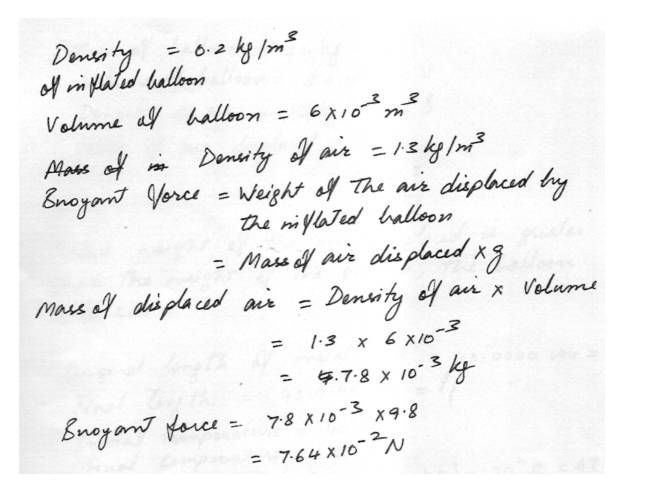
Physics Properties Of Matter Level: University
Fluid in motionA force of 250N is applied to a hydraulic jack that is 0.01 m in diameter. If the piston which supports the load has a diameter of 0.10 m approx how much mass can be lifted by the load piston? Disregard any height differences between pistons.
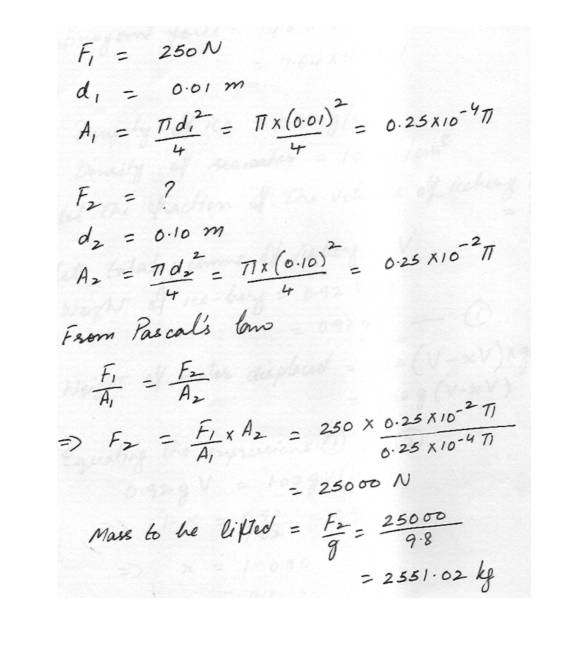
Physics Properties Of Matter Level: University
Fluid in motionA force of 250N is applied to a hydraulic jack that is 0.01 m in diameter. If the piston which supports the load has a diameter of 0.10 m approx how much mass can be lifted by the load piston? Disregard any height differences between pistons.
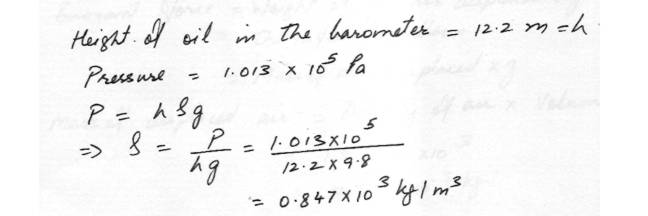
Physics Properties Of Matter Level: University
SolidA bar 2.0 long is suspended horizontally from its ends by steel wires 1.0 long. The wires have radii of 1.0 mm. A mass of 20 kg is then attached 40 cm from one end of the bar. What is the difference in length between the two wires?
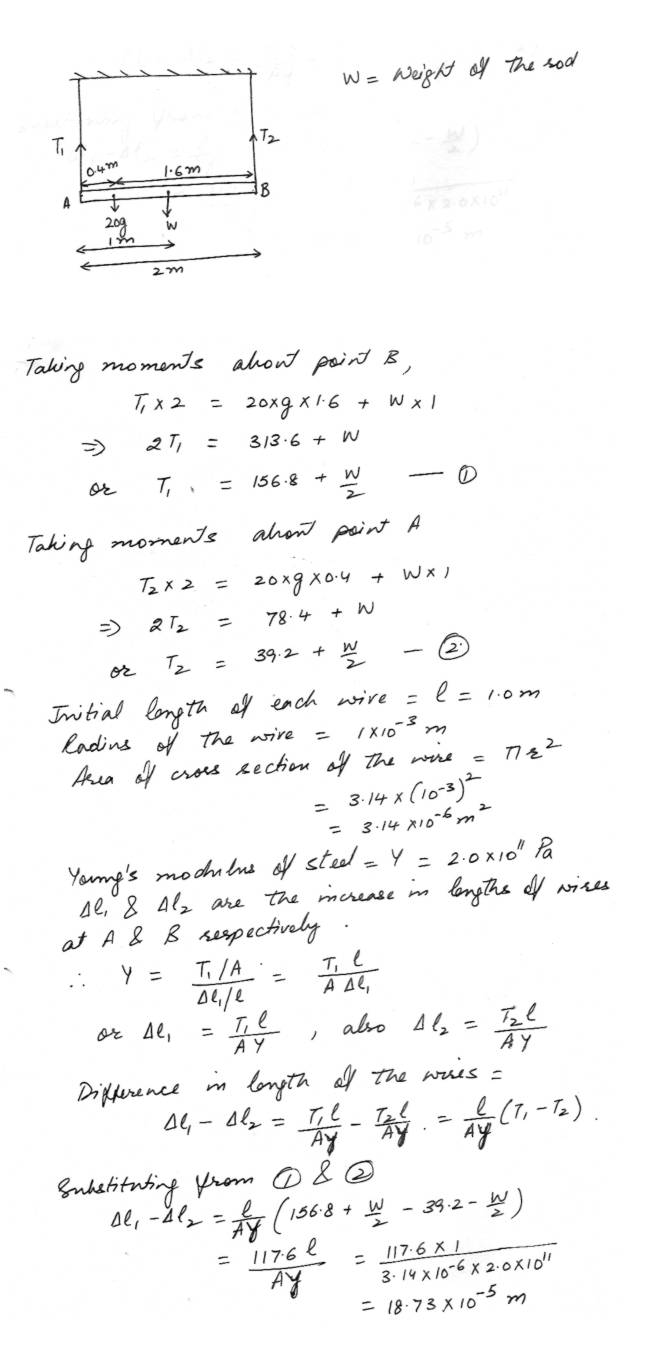
Physics Properties Of Matter Level: University
SolidA certain material has a density of (rho) and a tensile strenght of U. How long a rod of this material can be suspended from one end without breaking under its own weight? What is this length in the case of aluminum?
